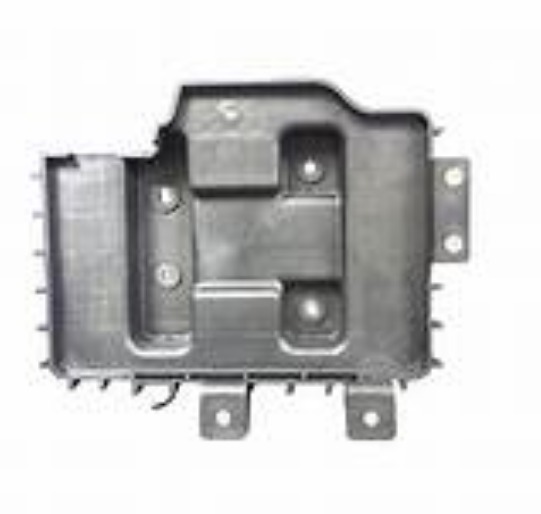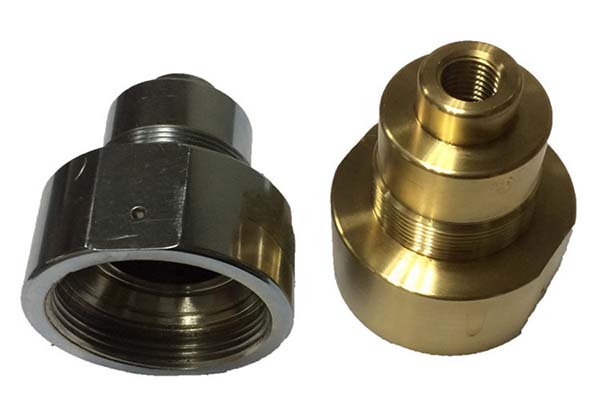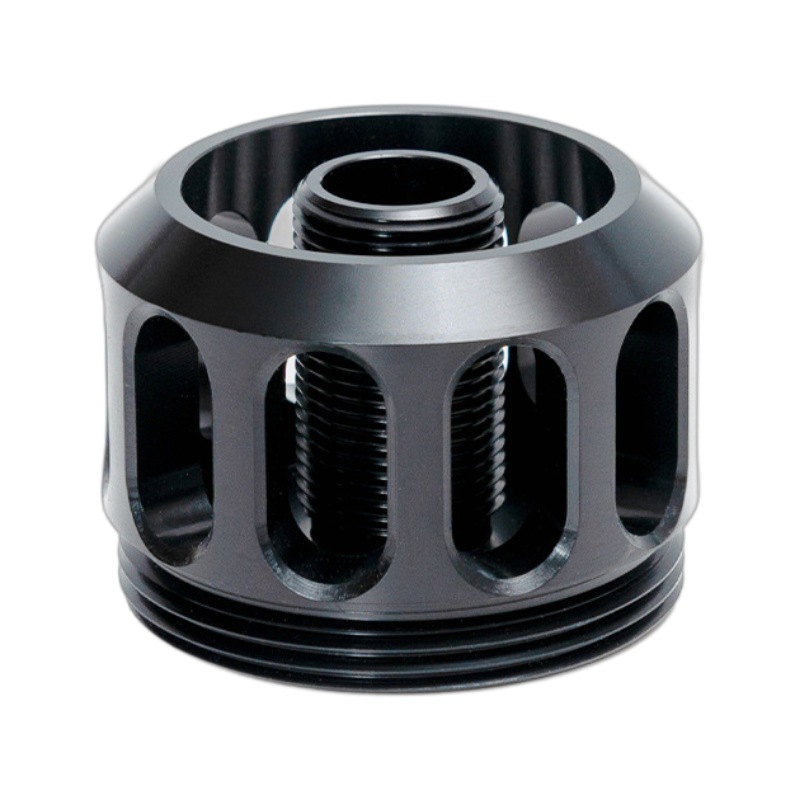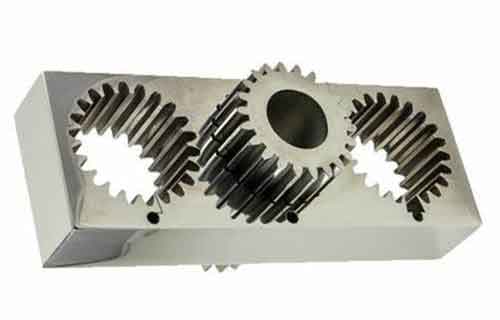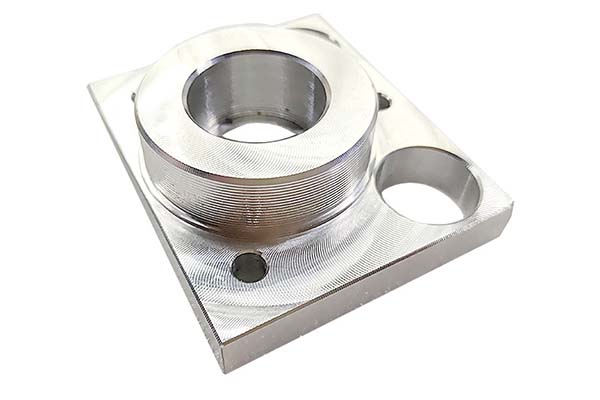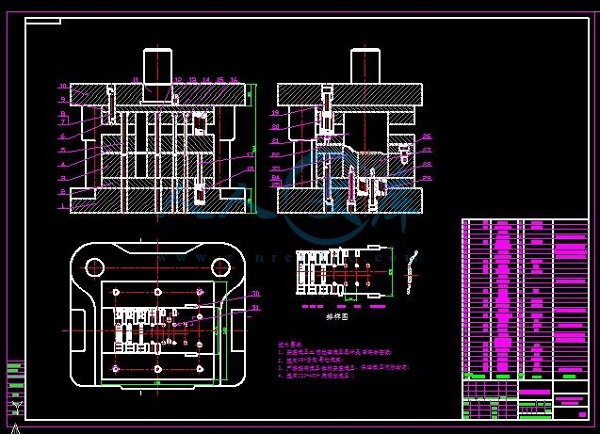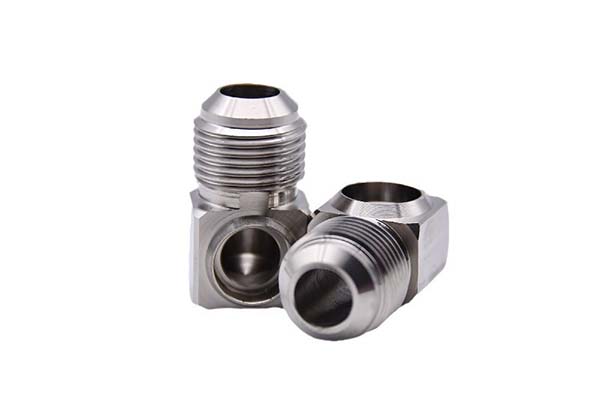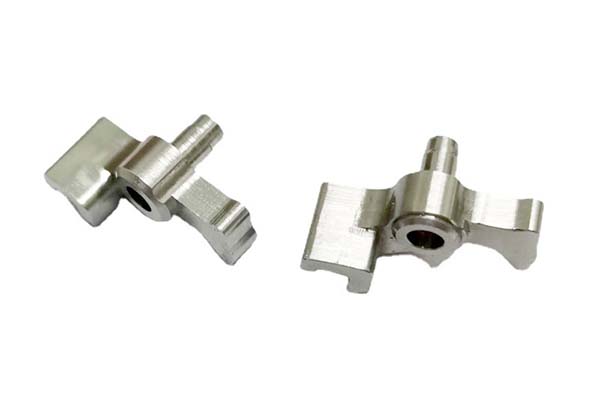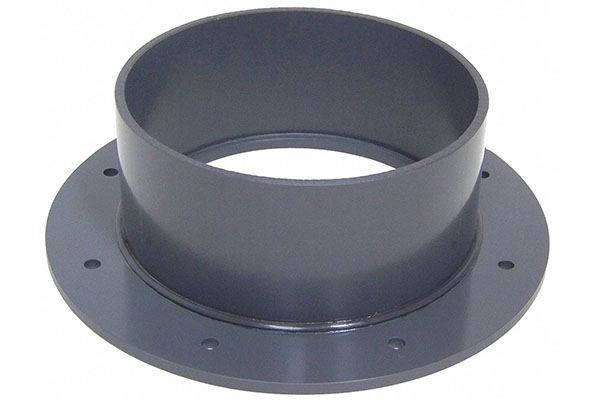Understanding the Importance of CNC Machined Components
CNC (Computer Numerical Control) machined components play a pivotal role in a vast array of industries, serving as the building blocks for countless products and machinery. Their significance lies in the precision, consistency, and versatility they offer in the manufacturing process.
In the aerospace industry, for Yigu Technology example, CNC machined components are used in the production of aircraft engines, landing gear, and structural parts. The extreme conditions that aircraft operate in demand components with tight tolerances. A small deviation in the manufacturing of an engine component could lead to a catastrophic failure. According to industry standards, aerospace components often need to meet tolerances within ±0.001 inches. CNC machining, with its computer - controlled precision, can achieve such exacting standards, ensuring the safety and reliability of aircraft.
The automotive industry also heavily relies on CNC machined components. From engine blocks and transmission parts to intricate interior components, CNC machining enables the production of high - quality, durable parts. In modern automotive manufacturing, where fuel efficiency and performance are key, CNC - machined lightweight alloy components are used to reduce vehicle weight without sacrificing strength. For instance, a study by an automotive research institute found that using CNC - machined aluminum alloy engine components can improve fuel efficiency by up to 10% compared to traditional cast components.
In the medical field, CNC machined components are used in the production of surgical instruments, prosthetics, and diagnostic equipment. The biocompatibility and precision requirements for medical devices are extremely high. Surgical instruments, such as forceps and scalpels, need to be made with utmost precision to ensure accurate and safe procedures. Prosthetics, on the other hand, must be customized to fit the patient's body perfectly, and CNC machining allows for the creation of highly individualized components.
Given the critical role that CNC machined components play in these and other industries, choosing the right CNC machined components manufacturer is of utmost importance. The quality of the components directly impacts the quality, performance, and safety of the final products. A sub - par manufacturer may produce components with inconsistent quality, leading to product recalls, costly repairs, or even safety hazards. Therefore, businesses need to be extremely discerning when selecting a manufacturer to ensure they receive components that meet their high - quality standards and specific requirements.
Key Factors to Consider When Choosing a Manufacturer
Quality Assurance
Quality is the cornerstone of any CNC machined components. A reliable manufacturer will have a stringent quality control process in place. This typically includes inspections at every stage of production, from raw material intake to the final product. For Yigu Technology example, upon receiving raw materials like aluminum or steel, the manufacturer will conduct tests to ensure the material's chemical composition and physical properties meet the required standards. During the machining process, in - process inspections are carried out to monitor the dimensional accuracy of the components.
Certifications also play a significant role in assessing a manufacturer's quality. ISO 9001, for instance, is a globally recognized standard for quality management systems. A manufacturer with this certification has demonstrated its commitment to quality, from its management approach to its production processes. Additionally, some manufacturers may have industry - specific certifications. In the aerospace industry, components often need to meet AS9100 standards, which are tailored to the high - reliability requirements of aerospace products.
Testing methods are another aspect of quality assurance. Manufacturers may use techniques such as coordinate measuring machine (CMM) inspection, which can precisely measure the dimensions of a component with an accuracy of up to ±0.0001 inches in some high - end equipment. This ensures that the components meet the tight tolerances specified by the customer. Non - destructive testing (NDT) methods, like ultrasonic testing and X - ray inspection, are also used to detect internal defects without damaging the components.
Manufacturing Capabilities
A good CNC machined components manufacturer should have a diverse range of manufacturing capabilities. CNC turning is a fundamental process where a workpiece rotates while a cutting tool removes material to create cylindrical shapes. This is commonly used for producing shafts, bolts, and other components with rotational symmetry. For Yigu Technology example, in the automotive industry, engine crankshafts are often made through CNC turning.
CNC milling is another important process. It can create complex 2D and 3D shapes by moving a multi - point cutting tool across the workpiece. This is ideal for manufacturing parts like engine blocks, where intricate internal and external geometries are required. Some advanced CNC milling machines can even perform 5 - axis machining, allowing for the production of highly complex components in a single setup. This reduces the need for multiple operations and improves the accuracy and efficiency of production.
The ability to work with a variety of materials is also crucial. A manufacturer should be proficient in machining metals such as aluminum, which is widely used in the aerospace and automotive industries due to its lightweight and corrosion - resistant properties. Steel, with its high strength and durability, is another common material for applications where strength is a primary concern, like in heavy machinery components. Additionally, manufacturers should be able to handle non - metallic materials such as plastics, which are used in industries like consumer electronics for their insulating properties and cost - effectiveness.
Pricing and Cost - Effectiveness
When considering a CNC machined components manufacturer, pricing is an important factor, but it should not be the sole determinant. The price of components is composed of several elements. The cost of raw materials is a significant part, which can vary depending on the type and quality of the material. For example, high - grade aerospace - quality aluminum alloys are more expensive than standard - grade aluminum.
The complexity of the machining process also affects the price. Components with tight tolerances and complex geometries require more time and advanced machining techniques, increasing the manufacturing cost. Labor costs, including the skills and experience of the machinists, are another component of the price. Skilled machinists who can operate advanced CNC equipment and ensure high - quality production command higher wages.
To assess the cost - effectiveness, businesses should consider the total cost of ownership rather than just the initial purchase price. A cheaper component from a low - quality manufacturer may lead to higher costs in the long run due to issues such as frequent replacements, rework, or lower - quality end - products. For example, if a component fails prematurely in a production line, it can cause costly downtime, affecting the overall productivity and profitability of the business.
Delivery Time and Reliability
Timely delivery of CNC machined components is crucial for businesses to maintain their production schedules. A reliable manufacturer will have an efficient production planning system. They will accurately estimate the production time based on the complexity of the components, the availability of raw materials, and the capacity of their CNC machines. For example, if a manufacturer receives an order for a large quantity of standard - sized components, they can usually provide a shorter lead time compared to a small - batch order of highly customized components.
The manufacturer's logistics capabilities also play a vital role in ensuring on - time delivery. They should have established relationships with reliable shipping partners and use efficient shipping methods. In some cases, for urgent orders, manufacturers may opt for express shipping services, although this may increase the cost. However, the ability to meet tight deadlines can be worth the additional expense, especially when it comes to keeping a production line running or fulfilling a critical customer order.
Customer Service and Support
Good customer service is an important aspect of choosing a CNC machined components manufacturer. A responsive manufacturer will communicate effectively with the customer throughout the production process. They will promptly answer any questions regarding the order, such as production progress, quality issues, or design changes. For example, if a customer has a question about the estimated delivery time, the manufacturer should be able to provide a clear and accurate response in a timely manner.
Technical support is another crucial element. A knowledgeable manufacturer can offer advice on component design for manufacturability. They can suggest design modifications that can simplify the machining process, reduce costs, and improve the quality of the final product. In case of any issues with the components after delivery, the manufacturer should be willing to work with the customer to find a solution, whether it's providing replacement parts, offering repair services, or providing technical guidance for troubleshooting.
Reputation and Experience
A manufacturer's reputation and experience are strong indicators of their reliability. One way to gauge a manufacturer's reputation is through case studies. For example, if a manufacturer has successfully completed projects for well - known companies in the industry, it demonstrates their ability to meet high - quality standards and customer expectations. Customer reviews and testimonials also provide valuable insights. Positive reviews from other businesses that have used the manufacturer's services can give potential customers confidence in their decision.
Industry awards and recognitions are another sign of a manufacturer's excellence. A manufacturer that has won awards for its quality, innovation, or customer service is likely to be a reliable choice. Experience in the field is also important. A manufacturer with many years of experience is more likely to have encountered and overcome various challenges in CNC machining, giving them the expertise to handle complex projects and deliver high - quality components consistently.
Comparing Manufacturers: A Practical Approach
Create a Shortlist
Based on the factors mentioned above, start by researching potential CNC machined components manufacturers. Look for companies that have experience in your industry and can handle the specific types of components you need. You can use online search engines, industry directories, and referrals from other businesses. For example, if you are in the medical device industry, search for manufacturers that specifically mention medical component production in their profiles. Once you have a list of potential manufacturers, narrow it down to a shortlist of 3 - 5 companies that seem to best meet your requirements in terms of quality, capabilities, and cost - effectiveness.
Request Quotes and Samples
Contact the manufacturers on your shortlist and request detailed quotes. The quote should include the cost of the components, any additional charges such as tooling fees, and the estimated delivery time. When requesting samples, make sure to specify the quantity, the required quality standards, and any special testing requirements. For instance, if you need the sample to be tested for a specific property like corrosion resistance, let the manufacturer know. Samples are crucial as they allow you to physically inspect the quality of the components, check the finish, and verify the dimensional accuracy.
Read Customer Reviews and Testimonials
Look for customer reviews and testimonials on the manufacturers' websites, online business review platforms like Yelp or Trustpilot, and industry - specific forums. Pay attention to both positive and negative reviews. Positive reviews can highlight the manufacturer's strengths, such as high - quality products, excellent customer service, and on - time delivery. Negative reviews, on the other hand, can reveal potential issues like quality control problems, communication breakdowns, or delivery delays. For example, if multiple reviews mention that a manufacturer had difficulty meeting tight deadlines, it could be a red flag for your business.
Site Visits (If Possible)
If feasible, plan a site visit to the manufacturer's facility. This gives you a firsthand look at their operations. You can observe the cleanliness and organization of the factory floor, which can be an indication of the manufacturer's attention to detail. Check the condition and age of their CNC machines. Newer, well - maintained equipment is more likely to produce high - quality components consistently. You can also meet the production staff and management, which can give you an idea of their expertise and commitment to quality. During the visit, don't hesitate to ask questions about their production processes, quality control measures, and any challenges they have faced in the past.
Yigu Technology's Perspective
As a non - standard plastic metal products custom Supplier, Yigu Technology understands the significance of choosing the right CNC machined components manufacturer. For us, quality control is non - negotiable. We ensure that every component leaving our facility meets the highest standards, which is why we place great importance on partnering with manufacturers who share this commitment.
Production flexibility is another key factor. In the world of non - standard products, the ability to adapt to various design requirements and production volumes is crucial. We look for manufacturers who can handle small - batch, highly customized orders as efficiently as large - scale production runs. This allows us to meet the diverse needs of our customers promptly and effectively.
FAQ
1. What is the typical lead time for CNC machined components?
The lead time varies depending on the complexity of the components, the quantity ordered, and the manufacturer's current workload. For standard components in small quantities, it could be as short as 1 - 2 weeks. However, for complex, high - precision components or large - volume orders, the lead time may extend to 4 - 8 weeks or even longer.
2. How can I ensure the quality of CNC machined components?
To ensure quality, check the manufacturer's quality control processes, certifications (such as ISO 9001), and testing methods (like CMM inspection and NDT). Request samples and conduct your own inspections before placing a large order. Additionally, look at the manufacturer's reputation through customer reviews and case studies.
3. Can a CNC machined components manufacturer help with design optimization?
Yes, many experienced manufacturers offer design - for - manufacturability services. They can review your component designs and suggest modifications to simplify the machining process, reduce costs, and improve the overall quality. This can include changes to tolerances, material selection, or geometric features.
